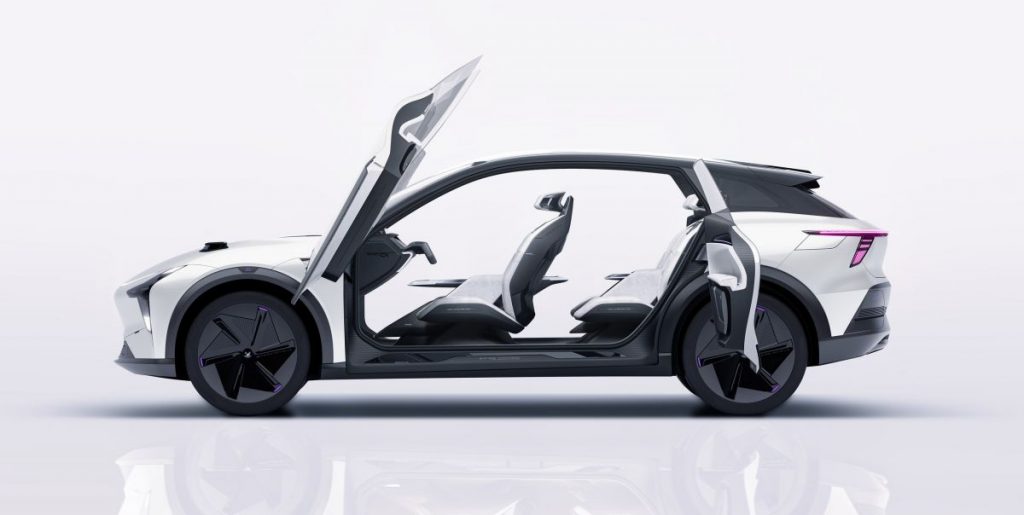Tesla’s potential Chinese competitor JIDU launches AI electric-vehicle ROBO-01


Chinese intelligent electric vehicle company JIDU has launched a new robot concept car called ROBO-01. The futuristic car is equipped with AI and machine learning technology. Car manufacturer Geely and AI company Baidu are the parent companies of JIDU. Together, they developed China’s first self-driving robot car that would potentially compete against Tesla.
ROBO-01 was first introduced in the XiRang Metaverse, where a digital avatar named Xijiajia drove it around the virtual world.
The ROBO-01 concept model will be 90% similar to the mass production one. With AI, the car will be able to recognize the driver’s emotions and express its own emotions back to humans. The futuristic robot car will feature a U-shaped folding steering wheel, a 3D borderless ultra-clear screen, and a human-machine co-driving map for drivers to find their way. For extra comfort, seating will be in zero gravity, thus allowing the driver’s spine to be in a neutral position, similar to astronauts sitting in a space rocket.
The intelligent self-driving aspect is made possible by a LiDAR detection system that uses light from a laser. If a crash occurs, AI collapses the LiDAR, thus improving safety for passengers.
The CEO of JIDU Xia Yiping thinks the future of car manufacturing has finally arrived, where AI takes over driving.
“The Intelligent Car 3.0 era is the era of robocars. The transition to this new era is marked by the shift of driving power from humans to AI, with robocars ultimately achieving self-generating progress led by AI. The automotive industry in the 3.0 era will see a seismic shift from a revolution in energy to a revolution in product attributes. The ultimate goal is to realize a fully driverless transportation experience. The JIDU robocar aims to meet users’ needs for intelligent travel, in-car intelligent assistance, and intelligent cabin in the new era,” Yiping elaborated.
Read related posts:
- Designer Philipp Plein transforms London flagship into ‘Crypto Concept Store’
- Lamborghini Will Auction a Supercar NFT
- Apple files patent for an autonomous car with embedded VR functions
Disclaimer
In line with the Trust Project guidelines, please note that the information provided on this page is not intended to be and should not be interpreted as legal, tax, investment, financial, or any other form of advice. It is important to only invest what you can afford to lose and to seek independent financial advice if you have any doubts. For further information, we suggest referring to the terms and conditions as well as the help and support pages provided by the issuer or advertiser. MetaversePost is committed to accurate, unbiased reporting, but market conditions are subject to change without notice.
About The Author
Agne is a journalist who covers the latest trends and developments in the metaverse, AI, and Web3 industries for the Metaverse Post. Her passion for storytelling has led her to conduct numerous interviews with experts in these fields, always seeking to uncover exciting and engaging stories. Agne holds a Bachelor’s degree in literature and has an extensive background in writing about a wide range of topics including travel, art, and culture. She has also volunteered as an editor for the animal rights organization, where she helped raise awareness about animal welfare issues. Contact her on [email protected].
More articles

Agne is a journalist who covers the latest trends and developments in the metaverse, AI, and Web3 industries for the Metaverse Post. Her passion for storytelling has led her to conduct numerous interviews with experts in these fields, always seeking to uncover exciting and engaging stories. Agne holds a Bachelor’s degree in literature and has an extensive background in writing about a wide range of topics including travel, art, and culture. She has also volunteered as an editor for the animal rights organization, where she helped raise awareness about animal welfare issues. Contact her on [email protected].

















































